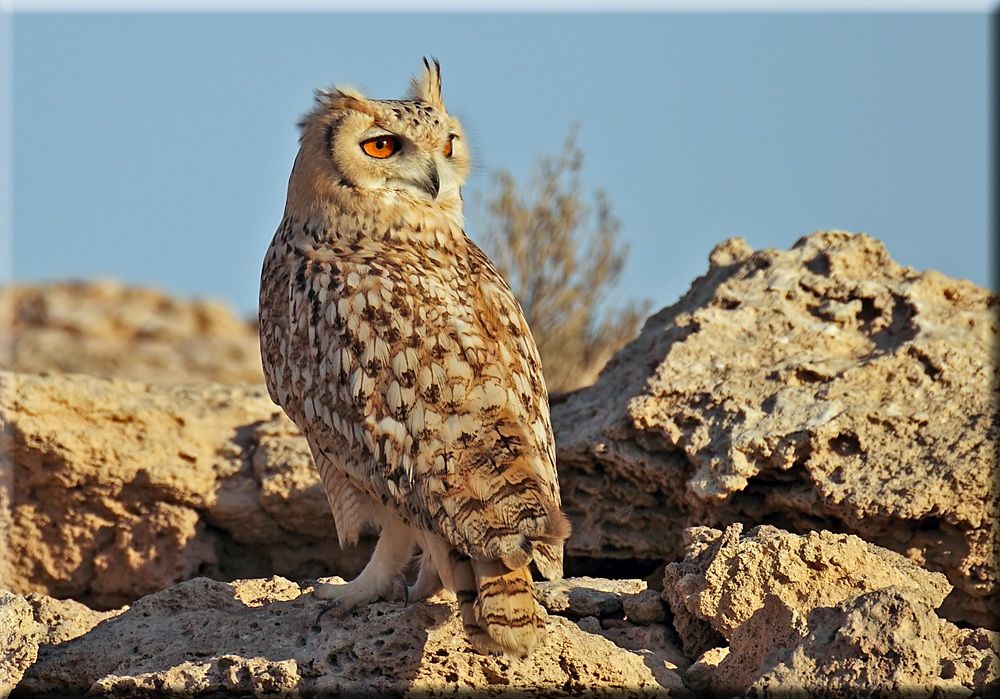
The Pharaoh eagle owl is a magnificent bird that inhabits the deserts of the Middle East, including the Dubai Desert. This majestic bird of prey is known for its distinctive appearance and impressive abilities, making it a popular subject of fascination and study for bird enthusiasts and researchers alike.

The Pharaoh eagle owl is a large bird, with a wingspan of up to 6 feet and a weight of up to 4 pounds. It has distinctive ear tufts that give it a majestic appearance, along with piercing yellow eyes that allow it to spot prey from great distances.
The Pharaoh eagle owl is typically found in rocky and mountainous desert areas, where it can easily blend into its surroundings and use its excellent tactile skills to catch small mammals, reptiles and insects.

The Pharaoh eagle owl plays an important role in the desert ecosystem. As the top predator, it helps keep smaller animal populations in check, preventing them from becoming too large and causing damage to the desert ecosystem.
Additionally, the Pharaoh Owl serves as a symbol of the resilience and beauty of the desert, reminding us of the importance of preserving these unique and valuable ecosystems for future generations.

Despite its refuge in the desert ecosystem, the pharaoh eagle owl faces a number of threats that could jeopardize its survival. These include habitat deterioration and decline, as well as poaching and manipulation by humans.
To protect the Pharaoh eagle owl and ensure its continued survival, it is important that conservation organizations and government agencies work together to preserve its natural habitat and enforce laws against poaching and theft.

The Pharaoh eagle owl is a magnificent and mysterious bird that inhabits the deserts of the Middle East, including the Dubai Desert. With its impressive abilities and distinctive appearance, it is a popular subject of fascination and study for bird researchers and enthusiasts.
However, the Pharaoh eagle-owl also faces a number of threats to its survival, highlighting the importance of conservation efforts and the need to preserve the desert ecosystems in which it lives. By working together to protect this majestic bird of prey, we can help ensure that it continues to thrive in the desert landscape for future generations.





